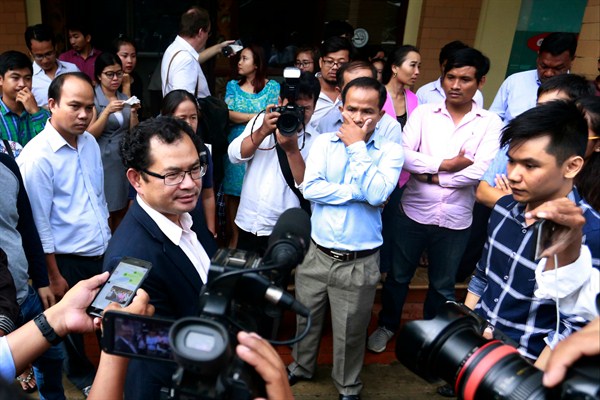Editor’s note: This article is part of an ongoing series about press freedom and safety in various countries around the world.
May has been a tough month for press freedom in Cambodia. On May 5, the Phnom Penh Post, an independent newspaper often critical of the Cambodian government, was sold to a Malaysian investor with links to Prime Minister Hun Sen. And on May 18, a court refused to release two Radio Free Asia reporters who have been held in pretrial detention for six months on charges of espionage. In an email interview, Sebastian Strangio, a journalist focusing on Southeast Asia and the author of “Hun Sen’s Cambodia,” discusses Hun Sen’s crackdown on the press and the prospects for independent media in Cambodia.
World Politics Review: How has the landscape for press freedom and reporters’ security in Cambodia evolved in the past few years? What methods has the government used to target independent and critical media and journalists?

